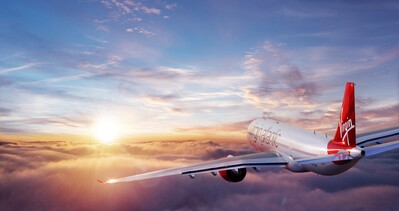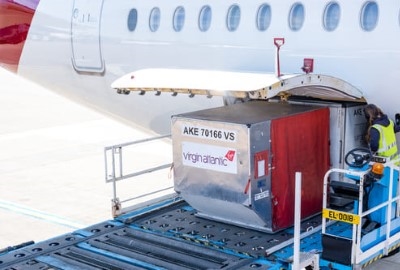Virgin Atlantic: 100% SAF flight was a success in many ways
Virgin Atlantic has published its findings after the first commercial transatlantic flight fully powered by sustainable aviation fuel (SAF). ‘Flight100’ traveled from London Heathrow to New York JFK without any modifications to its standard Boeing 787-9 equipment.
 Image by Virgin Atlantic
Image by Virgin Atlantic
The aircraft used a blend of fuels that dramatically reduced carbon and particulate emissions. Flight100 resulted in a 95-tonne reduction in CO2 emissions compared to a standard flight on the same route, which equates to a 64% decrease in carbon emissions. Business Traveller reports several other interesting findings.
Improved fuel efficiency
The flight demonstrated a 1% increase in energy density over traditional jet fuel, which translated to a fuel burn saving of 0.35 tonnes. If SAF usage reaches 10% by 2030, it could decrease the UK's total fuel burn by 12,000 tonnes and globally by 400,000 tonnes.
Reduction in non-CO2 emissions
SAF usage led to a 40% reduction in non-CO2 particulate emissions, such as sulphur oxides and nitrogen oxides, which suggests potential improvements in local air quality around airports and reduced formation of persistent contrails.
Fuel usage efficiency
The flight consumed 350kg less fuel than expected, indicating that SAF could lead to more efficient fuel use in flight operations.
Virgin Atlantic used the successful flight to advocate for a significant increase in global SAF production. The airline emphasized the need for government actions and policies, such as the implementation of a SAF mandate by 2030 to ensure 10% of aviation fuel is SAF.
According to Business Traveller, the flight was made possible through a consortium led by Virgin Atlantic and supported by entities including the Department for Transport, Rolls-Royce, Boeing, and several academic and research institutions. This collaboration highlights the importance of multi-sector support for advancing SAF technologies.


